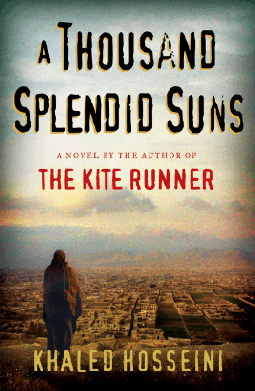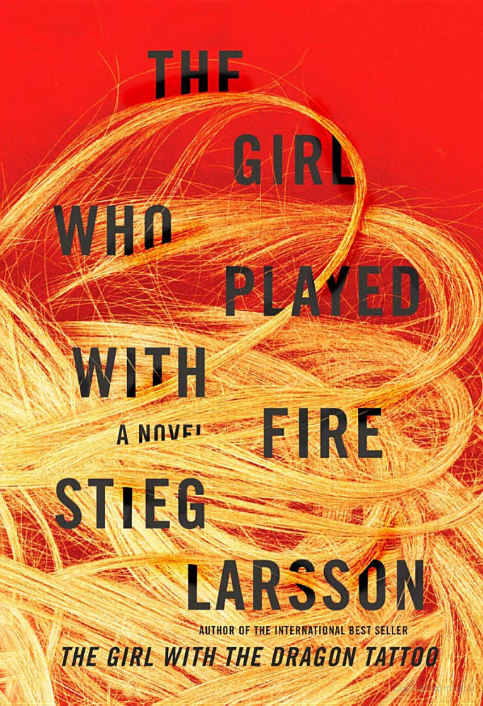Years ago, when I was researching my first novel, A Walk Across the Sun, about human trafficking, I stumbled upon a fascinating quote by Moises Naim, the acclaimed journalist: "Paradoxically, it may be popular fiction in books and film that stands the highest chance of conveying to the public the complex realities of illicit trade."
To a reporter like Mr. Naim, the idea that fiction might convey truth more effectively than fact is a paradox. To a novelist it comes as no surprise. While a case can be made that fact is more powerful than fantasy as a conveyor of truth, fiction based on fact may be the most powerful medium of all. For story more than any other form of speech binds the mind to the heart and compels social action.
History offers much support for this claim. Uncle Tom's Cabin was one of the matches that set alight the powder keg of slavery and precipitated the Civil War. Les Miserables, one of the most beloved novels of all time, exposed the fallacy of bourgeois attitudes toward the poor. To Kill A Mockingbird shaped the minds of a generation about race and class in the American South. The Lorax has instilled a passion for conservation in the hearts of millions of children (and parents) around the world.
As an author writing social conscious fiction, I stand on the shoulders of these giants. I wrote A Walk Across the Sun to make the reality of modern-day slavery personal for people who might not otherwise think about it. I wrote my new novel, The Garden of Burning Sand, to put narrative flesh on the global problem of violence against women and girls, which Nicholas Kristof, another journalist deeply invested in storytelling, has called "the paramount moral challenge" of the 21st century.
I am not alone in this pursuit. Many contemporary novels examine issues of conscience through the lens of fiction. Here is a short list of my favorites.
![]()
The Poisonwood Bible by Barbara Kingsolver
In sterling prose, Kingsolver illuminates the arrogance--and the danger--of importing Western ideas to Africa without respect for the context and local culture.
![]()
A Thousand Splendid Suns by Khaled Hosseini
With evocative characters and a matchless sense of place, Hosseini brings the challenge of women's rights in Afghanistan alive in an unforgettable way.
![]()
Little Bee by Chris Cleave
Though the eyes of a young Nigerian girl, Cleave gives human dimension to the stories of refugees from around the world who escape to the West but struggle to assimilate.
![]()
The Constant Gardner by John Le Carre
In a story both memorable and heartfelt, Le Carre exposes the underbelly of unbridled capitalism and the duplicity and perils of drug testing in the developing world.
![]()
Exile by Richard North Patterson
In a story as ambitious as it is empathetic, Patterson brings to life one of the most nettlesome geopolitical problems in modern times: the Israeli/Palestinian conflict.
![]()
Acts of Faith by Philip Caputo
With the confidence of an insider, Caputo leads readers on a journey through the Sudanese civil war, elucidating the horrors of the conflict and the hubris of Western intervention.
![]()
The Chamber by John Grisham
As a former lawyer with an abiding concern for justice, Grisham incarnates the moral dilemma of capital punishment in a story that asks questions that demand answers.
![]()
The Girl Who Played with Fire by Stieg Larsson
In addition to being a pulse-pounding thriller, the second novel in Larsson's Millennium Trilogy touches on the terrifying realities of sex slavery in Sweden.
To a reporter like Mr. Naim, the idea that fiction might convey truth more effectively than fact is a paradox. To a novelist it comes as no surprise. While a case can be made that fact is more powerful than fantasy as a conveyor of truth, fiction based on fact may be the most powerful medium of all. For story more than any other form of speech binds the mind to the heart and compels social action.
History offers much support for this claim. Uncle Tom's Cabin was one of the matches that set alight the powder keg of slavery and precipitated the Civil War. Les Miserables, one of the most beloved novels of all time, exposed the fallacy of bourgeois attitudes toward the poor. To Kill A Mockingbird shaped the minds of a generation about race and class in the American South. The Lorax has instilled a passion for conservation in the hearts of millions of children (and parents) around the world.
As an author writing social conscious fiction, I stand on the shoulders of these giants. I wrote A Walk Across the Sun to make the reality of modern-day slavery personal for people who might not otherwise think about it. I wrote my new novel, The Garden of Burning Sand, to put narrative flesh on the global problem of violence against women and girls, which Nicholas Kristof, another journalist deeply invested in storytelling, has called "the paramount moral challenge" of the 21st century.
I am not alone in this pursuit. Many contemporary novels examine issues of conscience through the lens of fiction. Here is a short list of my favorites.

The Poisonwood Bible by Barbara Kingsolver
In sterling prose, Kingsolver illuminates the arrogance--and the danger--of importing Western ideas to Africa without respect for the context and local culture.

A Thousand Splendid Suns by Khaled Hosseini
With evocative characters and a matchless sense of place, Hosseini brings the challenge of women's rights in Afghanistan alive in an unforgettable way.

Little Bee by Chris Cleave
Though the eyes of a young Nigerian girl, Cleave gives human dimension to the stories of refugees from around the world who escape to the West but struggle to assimilate.

The Constant Gardner by John Le Carre
In a story both memorable and heartfelt, Le Carre exposes the underbelly of unbridled capitalism and the duplicity and perils of drug testing in the developing world.

Exile by Richard North Patterson
In a story as ambitious as it is empathetic, Patterson brings to life one of the most nettlesome geopolitical problems in modern times: the Israeli/Palestinian conflict.

Acts of Faith by Philip Caputo
With the confidence of an insider, Caputo leads readers on a journey through the Sudanese civil war, elucidating the horrors of the conflict and the hubris of Western intervention.

The Chamber by John Grisham
As a former lawyer with an abiding concern for justice, Grisham incarnates the moral dilemma of capital punishment in a story that asks questions that demand answers.

The Girl Who Played with Fire by Stieg Larsson
In addition to being a pulse-pounding thriller, the second novel in Larsson's Millennium Trilogy touches on the terrifying realities of sex slavery in Sweden.